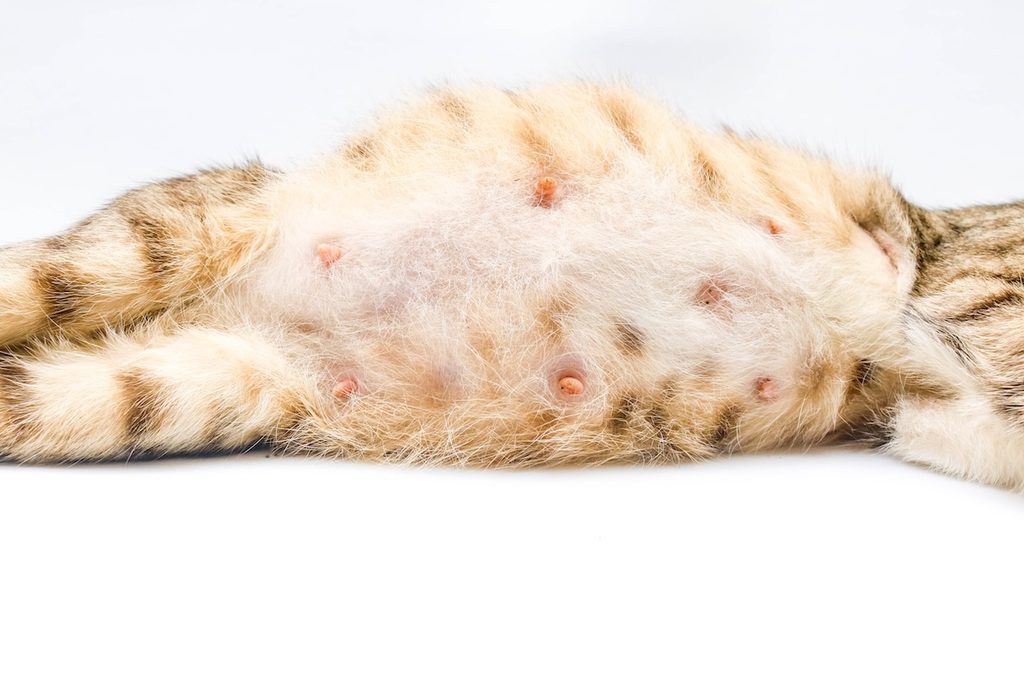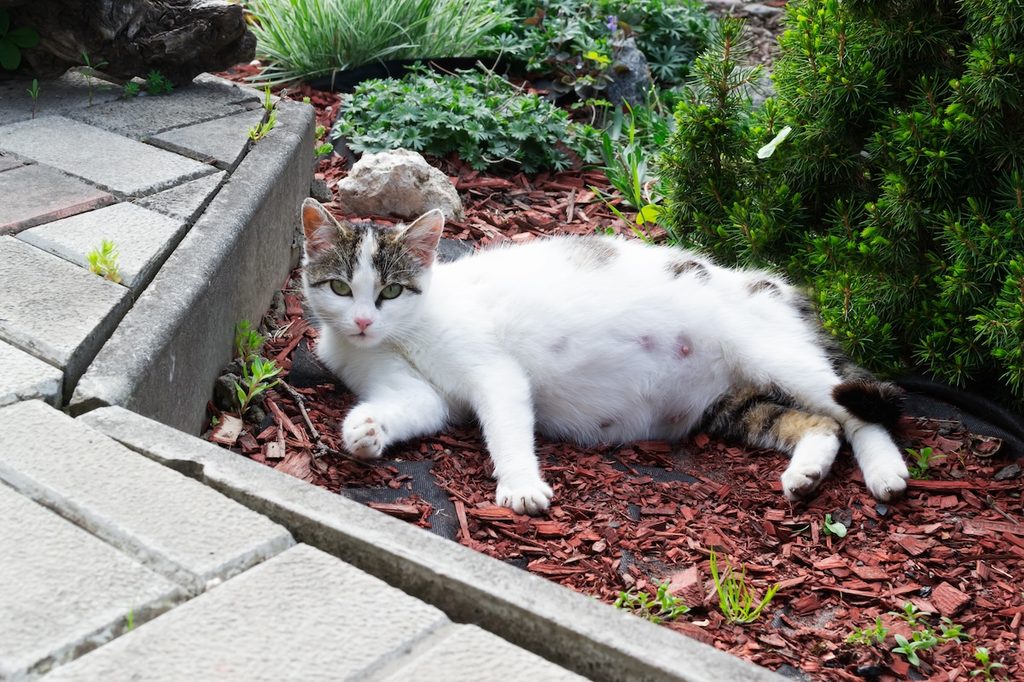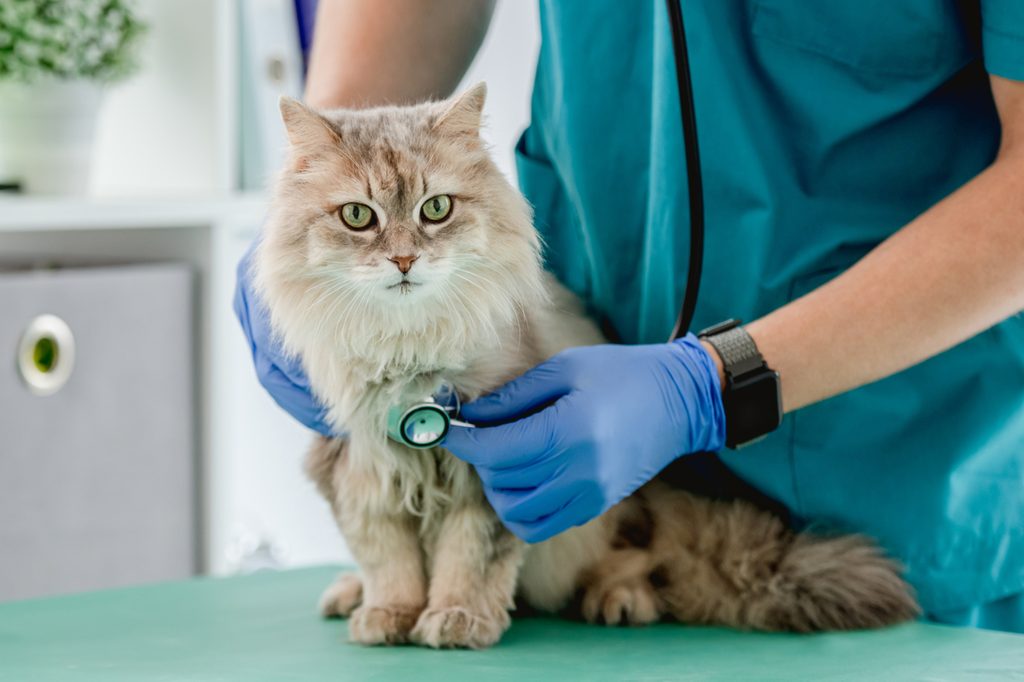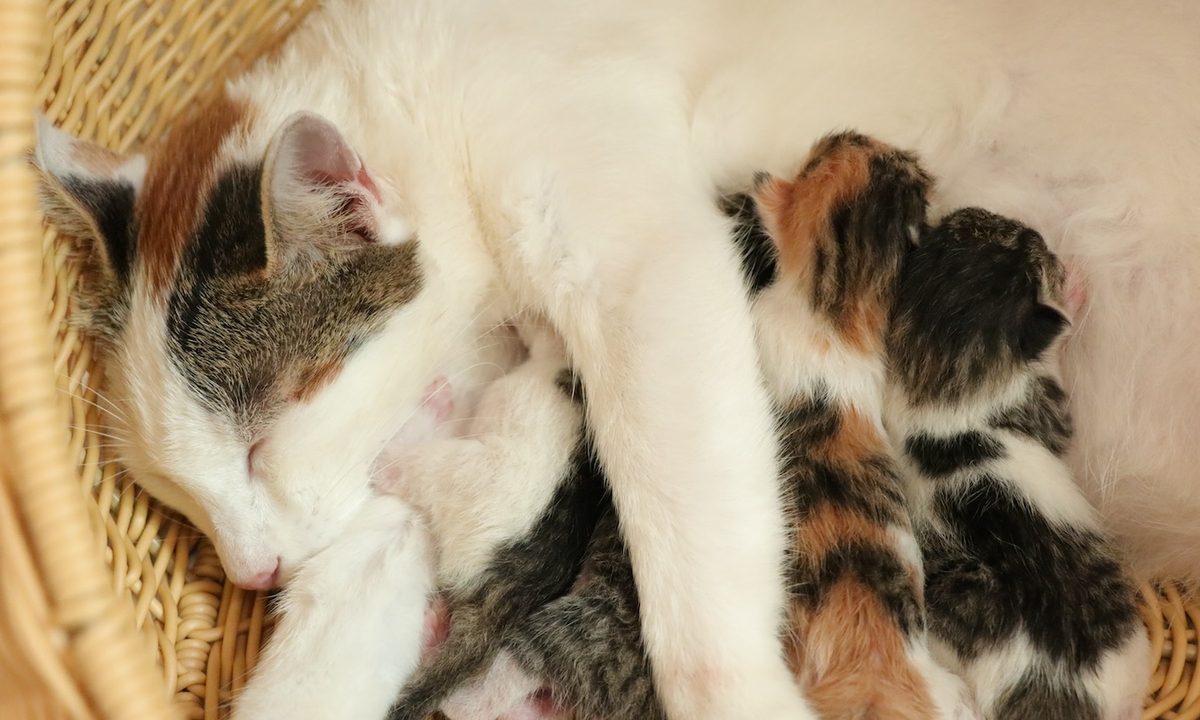Your little cat has suddenly put on a few pounds. She’s started hoarding blankets. Her appetite now seems to resemble that of a small horse. What’s wrong with your feline? Truthfully, it could be nothing, and she just might be pregnant. Of course, this only works if she has not been spayed and has recently been in close proximity with male cats, so you can rule it out when neither of these track. But assuming you can check those boxes, how do you know for sure that kittens are on the way? Here’s how to tell if a cat is pregnant.
Could my cat be pregnant?

We already covered the birds and the bees part, but there’s more to it than just having a tomcat around. For starters, only a kitty in heat can conceive. Your cat’s heats could start as young as four months and last her whole life — she never goes through menopause like a human. This cycle will usually occur in spring, though, that can depend on your location and the climate regulation in your house, which could trick her cycle (indoor cats can even enter heat in the winter).
For outdoor kitties, you should always spay (or neuter a male) to prevent her from accidentally falling pregnant. Even with a furry friend that never has contact with boys, she’ll probably be happier once she’s fixed, as the heat cycle includes numerous physical and behavioral changes. However, for anyone hoping to breed, read on to get the details of how to figure out if she’ll have babies.
Signs of pregnancy in cats

Let’s begin with the basics. Cats will gestate for about nine weeks, and you’ll start to see obvious signs three weeks after mating transpires. As with any mammal, pregnancy involves both physical and personality changes.
Physical changes during pregnancy in cats
Expect numerous changes in your little mouser during this time. These will be the most noticeable and help you figure out when she got pregnant.
Heat cycles stop
When your cat has been going through heats while you wait for her to get pregnant and suddenly it stops, you may have found success.
Nipples swell
At three weeks or so into the pregnancy, you’ll spot some changes to the nipples, sometimes called “pinking up.” Don’t worry if there’s a bit of discharge as well.
Body changes
You may notice an appetite change first, but the pregnant queen will also put on weight during this time. She’ll gain a total of about 4 pounds, and you should see her abdomen grow.
Personality changes during pregnancy in cats
Hopefully your fluffer avoids some of the moodiness of pregnancy, but do expect to see these changes to her demeanor.
Increased affection
Kitty may suddenly want all of your attention, but she also might turn on other pets in the household.
Nesting behaviors
A couple weeks before she gives birth, your four-legged friend will choose her spot and start collecting soft items for her nest.
Sleepiness
Our cats sleep about 16 hours in a day, but that will go up even more when she has a litter in her belly.
How the vet will help you diagnose pregnancy

It’s often best to get your cat’s doc involved in this process both to confirm the pregnancy and to make sure everything’s good with your pet and her babies.
Exam
She’ll get a normal check-up with a few extra pregnancy-related tests, including palpation — where the vet feels the tiny kittens inside her tummy.
Ultrasound and X-rays
Just like in a human, the ultrasound can take a look at the fetuses and confirm heartbeats, even in week three. Later in pregnancy, an X-ray could help count the cats.
Pregnancy test
You’ll need a blood test for this, as there isn’t a common urine test out there, but the vet can use one to confirm that she’s expecting.
As her due date gets closer, she might turn restless, pant, and even start meowing. Once she’s in labor, you should leave her be. Don’t worry, she’ll know exactly what to do. If it does look like things aren’t going well or the birth doesn’t progress as expected, reach out to your vet. Once the kittens come into the world, they’ll start to nurse and mom will clean them off.
Stay away for at least the first two weeks, as your cat will feel very protective of her new bundles of joy. At the four-week mark, you should start to handle them in small doses, so they get used to humans. While you observe them from afar, think about where you will home the little guys when it’s time, about 12 weeks. Cats can breed again basically right away, but you definitely want to wait until her litter has settled. Many vets recommend only letting her get pregnant once or twice per year.




